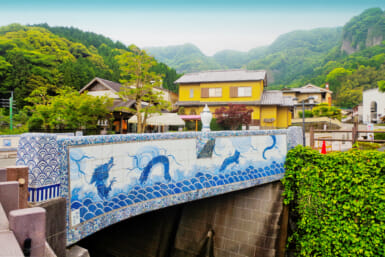by Luke Poliszcuk
Last month, eQualC Sustainability Communications held the first of a monthly series of events, the Green Leaders Forum. The first forum focused on the future of food and featured a panel of leaders at the cutting edge of sustainability-oriented activities in Japan. Members included Hiromi Matsubara, CEO and co-founder of Biopio and greenz.jp; Nanao Sonobe, editorial director of Eco+Waza magazine; and Jacob Reiner, president and chief architect at Eden Homes and founder and CEO of Earth Embassy in Yamanashi Prefecture.
In July 2006 Matsubara co-founded greenz.jp, a bilingual social media website focusing on sustainability. The Japanese website introduces positive stories and practices from around the world, acts as an interactive learning platform, and provides examples of socially responsible businesses. Matsubara says her dream is to walk the talk and to create a sustainable surfing village.
Eco+Waza magazine is the first Japanese-English bilingual magazine in the world focusing on Japanese eco-related technologies and philosophies. The title derives from the English ‘ecological’ and the Japanese term ‘waza,’ which includes the concepts of technologies, techniques, and craftsmanship, and signifies the company’s vision of becoming “a bridge between Japanese eco-friendly technology and the world.”
Reiner has worked at international recycling and solar companies, and was employed as director of planning for the Fuji Eco Park Village. In 2000 Reiner founded the Earth Embassy, an NPO located at the base of Mt. Fuji that currently hosts the Solar Cafe Farm and Guest House, the Eden Farm School and Eden Homes.
The panel discussion was open to the audience and participation was actively encouraged and very lively. One area on which most people agreed was that lifestyle choices make a critical difference in how each of us impacts the environment. For example, eating meat requires significantly more intensive food production than simply eating plant foods, as the feed for animals requires large amounts of land and water that could otherwise be used directly to produce human food. In addition, modern livestock factory farming practices are known to cause severe environmental degradation in the form of air and water pollution, and are a leading cause of greenhouse gas emissions, especially methane.
It is probably impractical to expect the whole world to go vegetarian, but it is possible to bring back more balance. While most people are aware that Japan’s traditional diet is low in meat, few know that this is at least partially the result of Buddhist-inspired imperial edicts extending back over 1,500 years forbidding the consumption of meat. This top-down vegetarianism resulted in low-meat diets that were high in rice, fish, fruits and vegetables, grains, and a variety of seaweeds. In modern days this diet translates to the longest lifespan of any nation on Earth, making an important lesson for individuals who want to maintain a healthy diet, as well as for policy-makers and socially responsible businesses which want to encourage healthy lifestyles.
Other key topics that were raised during the discussion included peak food production per capita and associated food security concerns; the recent growth in organic farming and demand for organic products; the traceability and safety of food (including genetically modified organisms); indoor, rooftop and vertical farming; food miles and a recent increase in locavores (people who choose to eat locally produced foods); the traditional Japanese concept of shun, or seasonal foods; and nanofoods that have been custom-designed in laboratories by shaping individual molecules and atoms.
It was impossible to go into detail on such a wide variety of topics in the short time available. However one thing was clear: whether you are a producer, retailer, or consumer, it is important to be aware of trends in food production, supply and demand. As one participant pointed out and movies like Super Size Me and Food, Inc. have amply demonstrated, in this age of cheap and abundant food, far too often we do not know the true cost of what we are eating.
External Link:
Green Leaders









